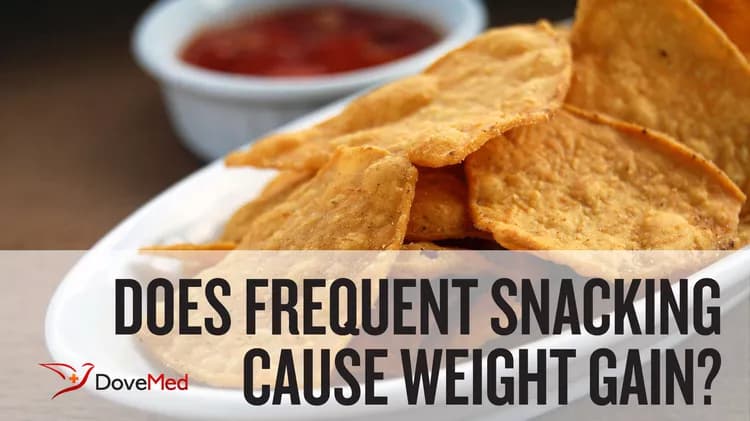Snacking includes nibbling on food in between meals. The main purpose why individuals indulge in snacking is the need to reduce hunger before the meal hour without exceeding the calorie need for each day. There are two types of snacking. The first one is mindful snacking, which would consist of eating nutritious snacks or a properly portioned one, when hunger pains arise. This promotes a healthy intake of fiber and antioxidants. The other type of snacking is careless snacking. This is the basic criminal when it comes to putting on weight. This type of snacking arises when people tend to eat due to boredom, happiness, habit, stress, or even frustration.
Frequent snacking would cause the individual to consume more than their daily calorie intake, which results in excess weight. When people binge on snacks that are high in energy and calories or take large servings of snacks, they put on weight easily. According to the BBC News, high-calorie food and beverage intake, large servings, and frequent snacking have led Americans to take in an average of almost 600 additional calories per day. This is also one of the major reasons as to why there is a high obesity rate in the United States.
It is widely accepted that eating between meals would cause weight gain, as snacking leads to an over consumption of calories. Several studies have demonstrated that when individuals are offered a snack before a meal, their meal size does not get impacted; rather, it remains the same. This means that the snacking does not cut down on a individuals calorie intake in terms of a meal. There is another method to snack and not put on weight, which is known as healthy snacking.
When one needs no reason to gain weight or put on extra pounds, but wants to keep the hunger pains at bay, healthy snacking is a great option. Choosing low-fat protein sources and smaller meals can ensure that one does not put on weight. One must be aware that eating high-calorie snacks and large meals are sure roads to weight gain. This is a deadly combination that puts on the unwanted pounds.
According to a survey by Mintel, 86% people considered eating fresh fruits to be healthy snacking. Whole fruits are the basic option for healthy snacking. Fruit juices and smoothies are often marketed as being the healthiest drinks, but actually are not. They contain sugar that is more or equal to sodas and fizzy drinks.
Also, it has been observed that when one is dehydrated, the mind tells the individual to eat rather than drink. This is where individuals should be mindful and drink a glass of chilled water rather than snack on something heavy. When individuals consume an equal number of calories that the body is able to burn daily, then the weight can stay stable.
Though snacking frequently has a direct impact on weight gain, this will happen usually only when individuals regularly consume more energy than is actually needed for them.
References:
http://newsroom.cumc.columbia.edu/blog/2013/09/27/healthy-snacking-for-weight-gain/ (accessed on 02/10/2015)
http://www.hsph.harvard.edu/obesity-prevention-source/obesity-causes/diet-and-weight/ (accessed on 02/10/2015)
http://www.mayoclinic.org/healthy-living/weight-loss/in-depth/healthy-diet/art-20046267 (accessed on 02/10/2015)
http://www.nudge-it.eu/topics/snacking-a-cause-of-weight-gain.html (accessed on 02/10/2015)
http://www.eufic.org/article/en/expid/review-eating-between-meals-health/ (accessed on 02/10/2015)
Helpful Peer-Reviewed Medical Articles:
Nirenberg, M. J., & Waters, C. (2006). Compulsive eating and weight gain related to dopamine agonist use. Movement disorders, 21(4), 524-529.
Francis, L. A., Lee, Y., & Birch, L. L. (2003). Parental weight status and girls’ television viewing, snacking, and body mass indexes. Obesity, 11(1), 143-151.
Zellner, D. A., Loaiza, S., Gonzalez, Z., Pita, J., Morales, J., Pecora, D., & Wolf, A. (2006). Food selection changes under stress. Physiology & behavior, 87(4), 789-793.
Related Articles
Test Your Knowledge
Asked by users
Related Centers
Related Specialties
Related Physicians
Related Procedures
Related Resources
Join DoveHubs
and connect with fellow professionals


0 Comments
Please log in to post a comment.